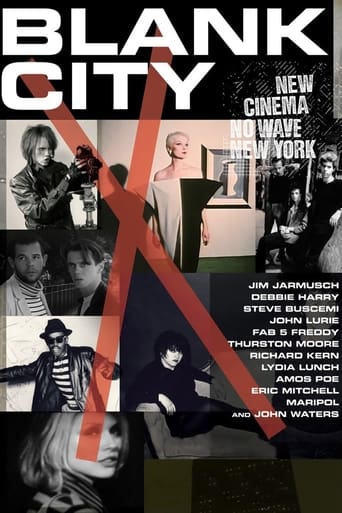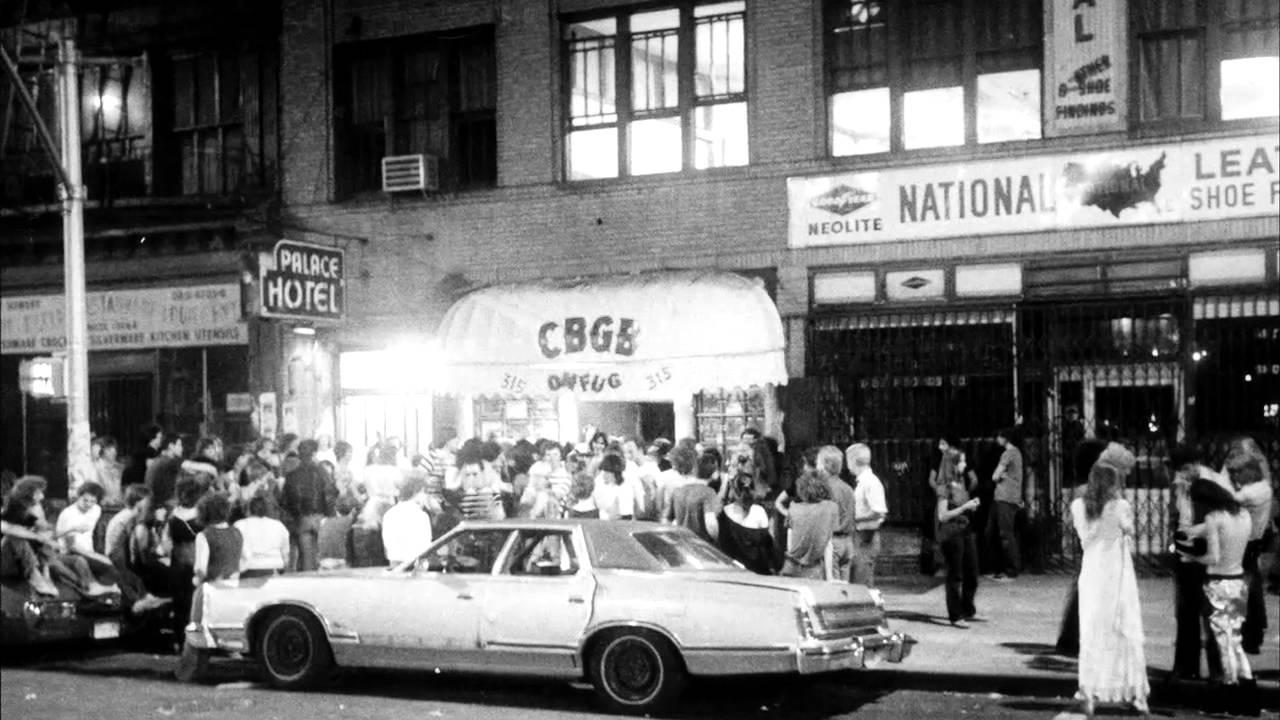artpf
When this was at Edinburg, this is what they said: Today, Manhattan is a byword for overpriced property, overexposed landmarks and overdressed fashionistas. In the late 70s, however, it was rat-infested, crime- crippled, cheap and nasty - somewhere for America to dump its immigrants, poor people and artists. Music, art, fashion and filmmaking burgeoned, fueled by drugs, dares, fads, feuds, and a fair helping of madness. LIttle of this is true. NYC has always been about fashion and high prices. Just look at New Yorker Magazine from 1923!!The movie is sort of boring. Let's be honest, these filmmakers are not very good. And there is little new in this documentary that hasn't been covered a gazillion times before.And how many times can you listen to some now rich idiot say "there wasy no money" "we did it for no money" "we didn't have any money."Who does when your 18? What a borefest
cinemabunny
I was really intrigued by this film and found myself very satisfied with the content and execution. Considering the amount of emphasis placed on the rise of independent film and the fall of the studio system, the amount of time talking about the following generation pales in comparison. Independent film never disappeared, it just became briefly overshadowed by larger block-buster films like The Godfather, Jaws, Star Wars. Granted, these are all enjoyable films, but it's refreshing to see a glimpse into the lives of the independent filmmakers of the 1970's. It's sort of a testament to the idea that these now-pivotal figures didn't necessarily struggle through obscurity as much they reveled in it, instead embracing an anarchistic style of creativity that really came to define them and make them such poignant artists.
kosmasp
Actually it seems, that you don't have to, but I think you should. Again this is a documentary that has a specific target audience and most people who are not into independent movies (or the wave of them coming out of America a few decades ago) won't like it. As you can see in some of the other comments on this title.I respect their comments and their views. I still have to disagree with one of them, which goes a bit too far and does imply something, that the movie does not do or try to do. This movie is not glorifying the filmmakers from that time. Quite the contrary, sometimes they are shown as complete lunatics. But that is the appeal of the movie. It does show you people as they are, without judging them. The judging comes from within the viewer.And while I have to admit not being a big fan (and also not knowing many) of the movies, I really did enjoy the movie. I liked the way it was shot and I liked the interviews. The pacing was great and the shots were interesting. And that was all before the lovely director came on stage and talked a bit about the movie. Unfortunately I had to leave and didn't have a chance to talk to her. But I hope to see more of the team behind this (her "partners in crime" were there too).
Hannah Brown
BLANK CITY is a surprisingly sterile account of the New York City underground film movement of the late 70's and early 80's, covering such directors as Amos Poe, Richard Kern, Charlie Ahearn, Jim Jarmusch, etc. The film fatally falters in spending its 90 minutes proselytizing to the uninitiated, taming its overly slick presentation into a film that lacks all of the rage, cynical sincerity or glorious bloodletting of the Cinema of Transgression that it attempts to tell the history of. The filmmakers were unfortunately in such bleary-eyed awe of what they were being told by those in front of their cameras to question it and search for the real film here: which is not a prolonged multi-voiced soliloquy on how "undeniably and vitally important" this movement was, but rather the reality of these filmmakers' obscurity. I arrived to the film well familiar with many of the filmmakers, if not the films, included in BLANK CITY and I can say I am a fan. But there is a reason most people have not heard of Nick Zedd, et al. And that is that the films are enjoyably merely as a bratty novelties. They do not really survive as any great artistic achievements. The people who made them were hardly the geniuses herded together in, say, the French New Wave or the new American cinema of the 1960's and 70's. And BLANK CITY, god bless its naive little heart, really attempts to convince you they are. You're told by all the usual suspects (Thurston Moore, John Waters, and Jim Jarmusch seem to be contractually obligated to appear in EVERY film on the period to echo the same soundbites) over and over about how innovative and brave these films were. And you're not told much else as the documentary flits past this clip or that. Yes, there are the requisite anecdotes about poverty and such, but we've heard them all before in SO many other films. The result is a sort of congealed DVD commentary over films most people, frankly, won't be that curious about. You get the sense the documentary is trying to convince itself of its own purpose, of its own need-- "SEE! LOOK HOW GROUNDBREAKING ALL OF THIS IS!" Yes, many of the No Wave films are worth a look for any cinephile. But BLANK CITY is disingenuous (or perhaps just undereducated) in pitching that those filmmakers broke any more ground by DIY-ing it to make their rebel images than Jack Smith did 20 years before or even Hans Richter did 40 years before that. The director seemed a bit disingenuous as well when, in presenting the film at the EIFF last week, she said that she felt she was working in the same manner and tradition because she had only "one...or maybe two credit cards to work with." I pitied her completely missing the point of the movement she was documenting. And the film suffers very much for it, for all of its sheen and optimism. BLANK CITY, in attempting to exploit the underground to a larger audience, finds its teeth surrendered, pieced together as little more than the run-of-the-mill historical survey of talking heads and animated titles and pictures that you might find on MTV or VH1. It learned nothing from the films it studies in way of originality or outrage. It's...polite. And it's guilty, in its stubborn propagandizing, of glossing over the reality of what befell these filmmakers. Most gave up. Some sold out (Amos Poe and his desperately and embarrassingly commercial outings of the 80's come to mind). Some like Kern, became pornographers of still-pubescent girls. Jarmusch made it and generally because he abandoned the methods so endorsed in BLANK CITY. But by and large, the pantheon gathered here is not of cinematic Gods, but wretches and failures and outcasts. And THAT is what is so glorious and fascinating about that underground movement of that period. THAT is what might have yielded an honest and far more compelling documentary on its subjects, á la Errol Morris, far more so than pleading on their behalf for their acceptance. THAT is what might have been keeping in spirit with the No Wave. I give the film 3 stars for its technical proficiency and because there are some expected choice insights from John Waters and Steve Buscemi, in particular. If you're not one of the very few fans of that movement, you'll probably be bored by the documentary's constant advertising of it. If you are, though, it's worth catching it at a festival if only to see some of those clips on the big screen. I don't imagine it will be shown elsewhere; it's nearly two years old and still undistributed (a result, I suspect, of the uber-niche audience it would draw commercially, if any, and of the extensive use of clips and music which I imagine must be very expensive to deliver).


 AD
AD
